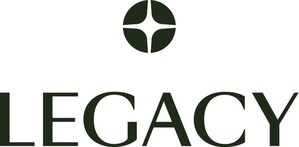WASHINGTON, Oct. 6, 2014 /PRNewswire-USNewswire/ -- Today Legacy – the national public health organization that funds the bold truth® youth smoking prevention campaign – announced it will support community colleges around the nation to go smoke or tobacco-free. Through a new competitive grants initiative, public community colleges may apply to receive funds and technical assistance to adopt and implement policies that restrict smoking or tobacco use on campus. Request for proposals and details are available today at www.LegacyforHealth.org/CCIgrant.
"Going tobacco- or smoke-free protects students, staff, and faculty from second-hand smoke and encourages students to make healthy choices by rejecting tobacco use, which is the number-one cause of preventable death in the United States," said Robin Koval, CEO and President of Legacy.
While other programs have focused on tobacco-free initiatives for traditional four-year colleges and universities, this is the first national effort focused on community colleges. Community colleges enroll nearly 13 million students in the U.S. With 99 percent of smokers starting before the age of 27, college campuses are critical partners to reduce young adults from tobacco-related disease and death.
Research from the Centers for Disease Control and Prevention shows that the smoking rate of adults with an associate degree is nearly twice as high compared to adults with an undergraduate degree. Meanwhile, 16 percent of community colleges have 100 percent smoke or tobacco-free policies compared to 38 percent of four-year universities and colleges.
"We know that young adults are targets of the tobacco industry marketing. Establishing a smoke or tobacco-free campus policy can be an effective way to protect young adults and populations most at risk from initiating and maintaining an addiction to tobacco. Let's create an environment where young adults can reverse the trend of tobacco use and succeed both in school and in health," said Koval.
Not only do smoke-free and tobacco-free campus policies improve the health of students, faculty, and staff, but there are also economic and environmental benefits. Such policies may result in lower healthcare costs, fire risks, and maintenance costs from cigarette and tobacco litter on campus. Another advantage: Smoke-free campus policies can prepare students for the workforce. Many worksites have smoke-free air policies and a growing number of employers restrict hiring to non-smokers.
Legacy will begin accepting applications Oct. 6, 2014 and the deadline for submission is Nov. 6, 2014. Legacy will award up to 100 public community colleges beginning in March 2015. Initial grants are for one-year. Grantees may be invited to apply for a second and third year of funding. Grant awards will be announced early February 2015. The Request for Proposals and more information can be found at www.LegacyforHealth.org/CCIgrant.
Background:
There are currently 1,372 smoke-free college campuses in the U.S., of which 938 are fully tobacco-free. Another 176 campuses prohibit the use of e-cigarettes on their premises. With these statistics, it is hoped that this grant will further the movement towards tobacco-free campuses.
These numbers reflect extraordinary progress; at the time of the Tobacco Free College Campus Initiative's (TFCCI), a separate project launched by the U.S. Department of Health and Human Services in September 2012, there were 774 campuses with 100% smoke-free policies, 562 of them tobacco-free. In the 22 months since the start of the TFCCI's campaign, an additional 598 college and university campuses in the U.S. (a 77.3% increase) have adopted comprehensive smoke-free policies, with an impressive 376 of those being tobacco-free.
Legacy is a key sponsor of the TFCCI and created this new initiative to reach more diverse populations at Community Colleges, as well as at Historically Black Colleges and Universities around the country. Legacy's vision is to establish comprehensive tobacco-free campus policies on all campuses, and thereby address tobacco use and populations that are disparately impacted and are often targeted by the tobacco industry – communities of color, young adults, and low SES individuals.
Legacy envisions an America where tobacco is a thing of the past, where all youth and young adults reject tobacco use. Legacy's proven-effective and nationally recognized public education programs include truth®, the national youth smoking prevention campaign that has been cited as contributing to significant declines in youth smoking; EX®, an innovative public health program designed to speak to smokers in their own language and change the way they approach quitting; and research initiatives exploring the causes, consequences and approaches to reducing tobacco use. Legacy also develops programs to address the health effects of tobacco use – with a focus on priority populations disproportionately affected by the toll of tobacco – through alliances, youth activism, training and technical assistance. Located in Washington, D.C., the foundation was created as a result of the November 1998 Master Settlement Agreement (MSA) reached between attorneys general from 46 states, five U.S. territories and the tobacco industry. To learn more about Legacy's life-saving programs, visit www.LegacyForHealth.org.
Follow us on Twitter at @legacyforhealth and on Facebook at www.Facebook.com/Legacy.
Logo - http://photos.prnewswire.com/prnh/20101101/DC86294LOGO
SOURCE Legacy
WANT YOUR COMPANY'S NEWS FEATURED ON PRNEWSWIRE.COM?
Newsrooms &
Influencers
Digital Media
Outlets
Journalists
Opted In





Share this article